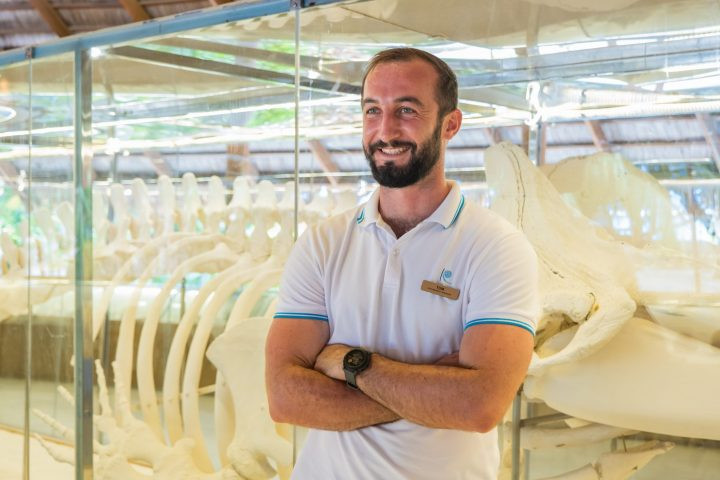

Kuramathi Maldives Leads the Way in Marine Conservation and Sustainability
Wednesday 2nd of July 2025
At Kuramathi Maldives, sustainability is not just a mission—it’s part of everyday operations. Leading these efforts is Sustainability Manager Tom Osborne, who brings strong academic and field experience to the role. With a BSc and MRes in Marine Biology from Swansea University, Osborne is passionate about making a “big difference in a small place.”
Originally from Cornwall in the UK, Osborne’s interest in marine life began early, with research focused on juvenile green turtles. His conservation work has taken him to Costa Rica, Oman, Saudi Arabia, and Kenya, where he helped set up a community eco-centre.
At Kuramathi, Osborne oversees a wide range of sustainability programs. A key project is the Muraka Coral Regeneration Project, launched with the Maldives Coral Institute. The lagoon now houses 240 coral frames supporting over 3,600 coral fragments.
“We aim to add 200 more coral frames in the coming months, bringing the total to over 5,000 coral fragments,” Osborne shared. “Although we still have a long way to go to reach our ultimate goal of 1,000 frames, we remain fully committed to our mission.”
In addition to coral regeneration, the resort continues long-standing eco practices like reducing food waste and eliminating single-use plastics. Osborne’s approach to sustainability is grounded in the belief that we “borrow the Earth from our children.”
Kuramathi actively promotes research partnerships, welcoming local and international universities. Currently, master’s students are studying grey reef shark populations at Madivaru and examining the carbonate budget of the house reef—important for understanding its role in climate resilience.
Upcoming projects include research on chemosensory signals and larval fish recruitment by students from Munich, as well as a study by a student from Milan on marine species associated with coral frames.
In a push for renewable energy, Kuramathi is installing solar panels on 19 buildings, expected to produce 942,000 kWh per year and reduce diesel use by 255,000 litres.
The Eco Centre remains central to the resort’s sustainability mission. It features a hydroponic garden supplying fresh produce to on-site restaurants, along with guest education through snorkelling safaris and marine presentations.
Kuramathi also invests in its neighbouring communities through the Rasdhoo Blue Tide Swim Club, where 25 children from Rasdhoo take part in monthly marine education sessions led by the Eco Centre team.
From coral restoration and scientific research to solar power and youth education, Kuramathi Maldives continues to lead the way in responsible tourism—protecting marine ecosystems and empowering future generations.